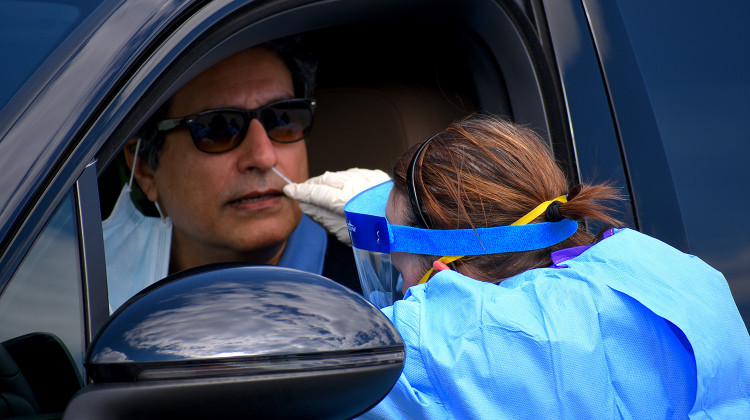
To best decrease the viral load, or the amount of virus in a person, the study found participants needed antiviral medication within two days of developing symptoms.
Justin Hicks/IPB NewsClinical trials for antiviral drugs to treat COVID-19 have produced inconsistent results. New research led by Indiana University says the problem may come down to how these trials are designed.
Indiana University assistant research scientist Keisuke Ejima and researchers at Nagoya University in Aichi, Japan, created simulations based on clinical data to analyze how COVID-19 drug trials are designed.
To best decrease the viral load, or the amount of virus in a person, the study found participants needed antiviral medication within two days of developing symptoms. But clinical trials on average get participants around five days after symptoms.
Ejima found antiviral medication started beyond five days had almost no effect on the amount of virus in a person.
“Treatment timing is really important. If treatment is initiated after the peak – it’s hopeless,” Ejima said. “We don’t see any difference.”
While the study is entirely focused on clinical trial design, he said there are treatment applications as well.
"Once you feel sick, you should get tested and ask for treatment. As soon as possible. Don’t–don’t wait," Ejima said.
The study found that clinical trials would be improved – with fewer participants – by using symptom onset criteria.
Contact Lauren at lchapman@wfyi.org or follow her on Twitter at @laurenechapman_.
 DONATE
DONATE






 Support WFYI. We can't do it without you.
Support WFYI. We can't do it without you.